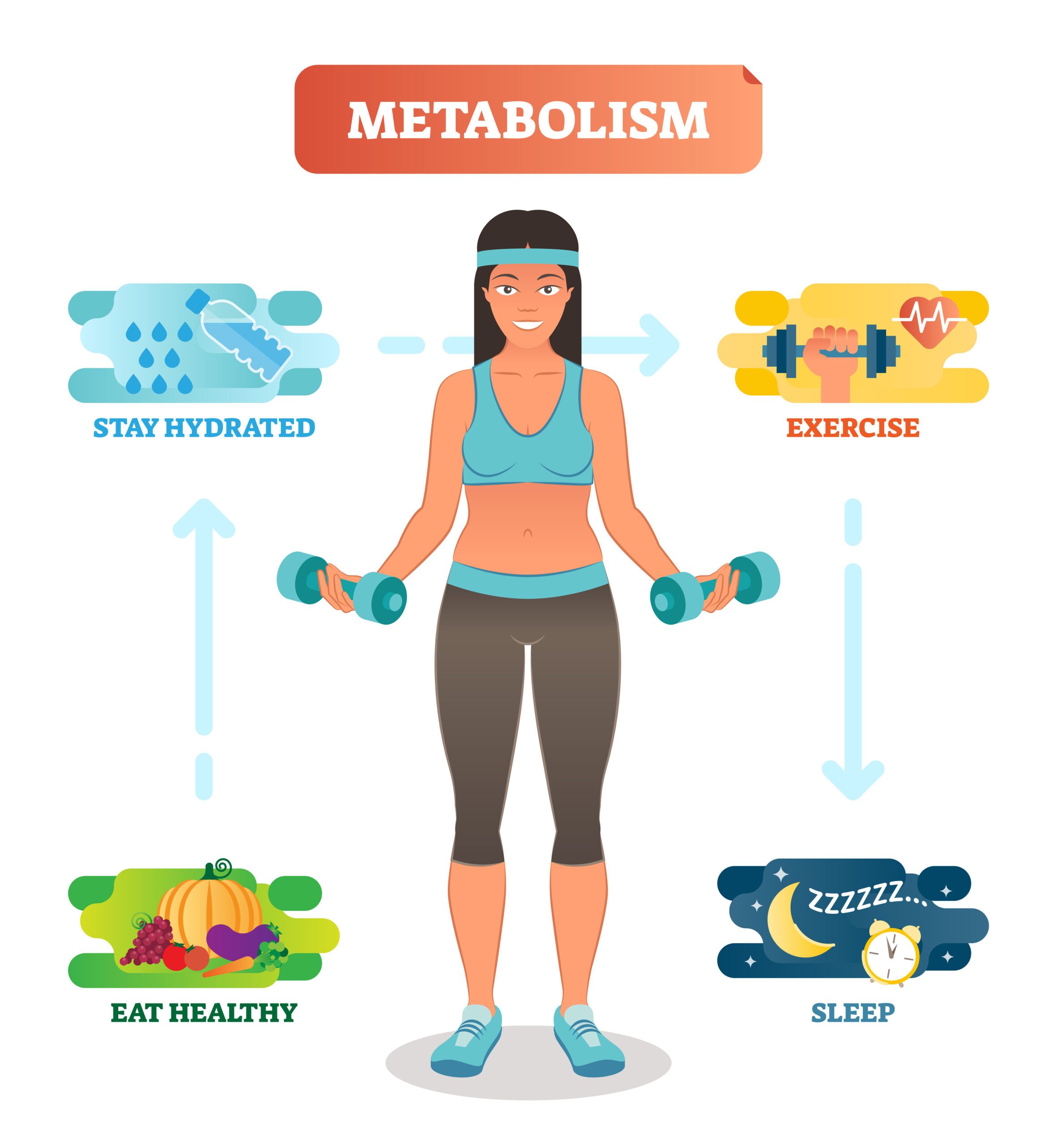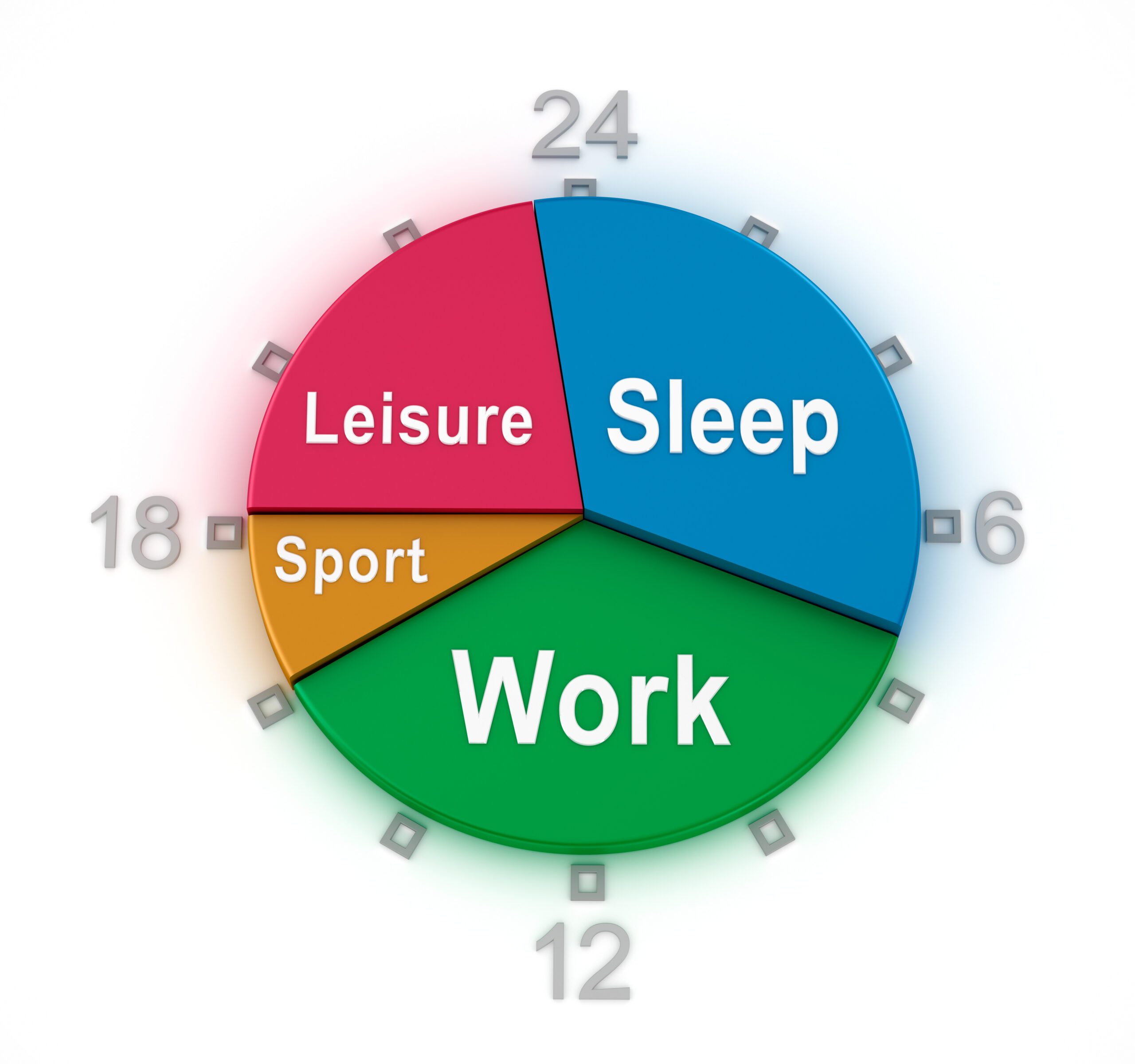Sleep Your Way to a Healthier Weight: Understanding the Sleep-Weight Connection
January 11, 2024
 1170
1170 
In the journey towards effective weight management, sleep is a crucial factor that often doesn’t get the attention it deserves. Check out Exciting Sleep-Weight Connection between managing your weight and getting a good night’s sleep.
While diet and exercise are typically at the forefront of weight loss strategies, the role of sleep is equally vital.
Quality and duration of sleep have profound impacts on weight loss, metabolism, and appetite regulation.
Surprisingly, this key component is frequently overlooked in conventional weight loss plans.
This blog delves into the significant but often underestimated relationship between sleep and weight management, shedding light on how getting adequate rest is not just about feeling refreshed – it’s a fundamental pillar of maintaining a healthy weight.

The interplay between sleep and metabolism is a complex and fascinating aspect of human physiology.
Sleep, a restorative process, is intricately linked with various metabolic processes in the body.
Sleep’s Influence on Hormonal Balance
Sleep affects numerous hormones that regulate metabolism, hunger, and appetite.
When we are deprived of sleep, our bodies experience hormonal imbalances.
For instance, cortisol levels, often referred to as the stress hormone, can increase with poor sleep.
Elevated cortisol levels are linked to fat storage and weight gain.
Similarly, sleep deprivation can disrupt insulin sensitivity.
Insulin is a hormone that regulates blood glucose levels.
When its function is impaired, it can lead to increased fat storage and a higher risk of obesity.
Impact on Hunger Hormones
Sleep deprivation also influences the hormones ghrelin and leptin, which control hunger and satiety signals.
Lack of sleep tends to increase ghrelin (the hunger hormone) and decrease leptin (the satiety hormone), leading to increased appetite and caloric intake.
This hormonal disruption makes managing weight more challenging, as it not only increases hunger but also affects the body’s ability to properly metabolize food.

The relationship between sleep duration and appetite regulation is a critical factor in understanding weight management.
Sleep deprivation has a direct and profound impact on the hormones that control hunger and satiety.
Influence on Ghrelin and Leptin
Lack of adequate sleep disrupts the balance of ghrelin and leptin, hormones responsible for signaling hunger and fullness to the brain.
Sleep deprivation typically leads to elevated levels of ghrelin, the hormone that signals hunger, and decreased levels of leptin, which signals fullness.
This imbalance often results in increased hunger and appetite, making it more challenging to maintain a healthy diet and leading to higher calorie intake.
Research on Sleep and Obesity Risk
Numerous studies have established a link between short sleep duration and a higher risk of obesity.
Research indicates that individuals who consistently get less than the recommended amount of sleep are more likely to gain weight and have a higher body mass index (BMI).
This connection highlights the importance of adequate sleep in maintaining a healthy weight and preventing obesity.

While the duration of sleep is important, the quality of sleep also plays a crucial role in effective weight loss.
Impact of Sleep Quality
High-quality sleep, characterized by uninterrupted and restful periods, is essential for the body’s metabolic and hormonal functions.
Poor sleep quality can lead to fatigue, decreased motivation for physical activity, and impaired decision-making, all of which can negatively affect weight loss efforts.
Sleep Disorders and Weight Loss Challenges
Sleep disorders, such as insomnia and sleep apnea, not only disrupt sleep quality but also have been linked to difficulties in losing weight.
Irregular sleep patterns, including frequent awakenings and difficulty falling or staying asleep, can hinder the body’s ability to regulate metabolism efficiently.
Additionally, individuals with sleep disorders often experience increased stress and fatigue, making it harder to stick to exercise routines and healthy eating habits.

Achieving better sleep quality and duration is integral to effective weight management.
Here are some practical tips that can help enhance sleep, thereby supporting your weight loss journey.
Maintaining a Regular Sleep Schedule
Stick to a consistent sleep schedule, even on weekends.
Going to bed and waking up at the same time every day helps regulate your body’s internal clock.
This consistency aids in improving sleep quality and makes falling asleep easier.
Creating a Restful Sleep Environment
Make your bedroom conducive to sleep.
This means a cool, dark, and quiet space.
Consider using blackout curtains, eye masks, or earplugs if necessary.
Invest in a comfortable mattress and pillows.
The physical comfort of your bed can significantly impact your ability to fall and stay asleep.
Avoiding Stimulants Before Bedtime
Avoid caffeine and nicotine close to bedtime.
These substances can interfere with your ability to fall asleep.
Also, be mindful of alcohol consumption, as it can disrupt sleep patterns and decrease sleep quality.
Relaxation Techniques
Incorporate relaxation techniques into your evening routine.
This can include activities like reading, taking a warm bath, or practicing meditation.
Gentle, restorative yoga or deep breathing exercises can also promote relaxation and improve sleep quality.
Lifestyle Changes
Pay attention to what you eat and drink before bed.
A heavy meal can cause discomfort, while too many fluids might lead to frequent awakenings for bathroom trips.
Regular physical activity can help you fall asleep faster and enjoy deeper sleep, but try not to exercise too close to bedtime as it might have the opposite effect.

The impact of improved sleep on weight management is best illustrated through real-life success stories and case studies.
These narratives provide a tangible understanding of how enhancing sleep habits can significantly transform one’s weight loss journey.
Real-Life Transformations
One case study might involve a middle-aged woman who, after years of struggling with weight gain, turned her focus to improving her sleep.
By adopting a regular sleep schedule and creating a restful environment, she not only slept better but also found herself more energized and motivated to exercise and eat healthily.
The result was a gradual, sustainable weight loss and an overall improvement in her health.
Another example could be of a young professional whose erratic sleep patterns and late-night snacking contributed to weight gain.
By addressing his sleep issues, including practicing relaxation techniques and avoiding late-night electronics, he was able to curb his nighttime eating habits and lose the excess weight.
The Role of Sleep in Lifestyle Changes
These stories highlight that while diet and exercise are crucial, optimal sleep is a key component of a successful weight management strategy.
They exemplify how addressing sleep issues can lead to a more balanced lifestyle and, consequently, more effective weight loss.
The journey of weight management is multifaceted, with sleep playing a crucial yet often underestimated role.
Understanding the link between sleep and weight management is essential for anyone looking to achieve and maintain a healthy weight.
Integrating Sleep into Weight Loss Strategies
As we have seen, sleep impacts hormonal balance, appetite regulation, and overall metabolism — all of which are integral to managing weight.
Therefore, it’s important for individuals to not only focus on diet and exercise but also to give due attention to their sleep patterns.
A Holistic Approach to Health and Weight Loss
Consider your sleep habits as an integral part of your overall health and weight loss strategy.
Good sleep can enhance the effectiveness of your dietary and exercise efforts.
Remember, improving sleep quality and duration can lead to better health outcomes, making your weight loss journey more sustainable and successful.
In conclusion, while weight loss is often associated with diet and physical activity, let’s not forget the power of good sleep.
It’s more than just rest; it’s a foundational pillar for a healthier, balanced life.

A new study suggests that a widely used sugar substitute found in diet sodas, chewing gum, and low-sugar yogurt may elevate insulin levels. This could increase the long-term risk of heart disease. “Artificial sweeteners have infiltrated nearly all types of food, making it crucial to understand their long-term health effects,” said Yihai Cao, senior author […]

Diet Coke has long been a fan-favorite among soda lovers who want a fizzy, guilt-free alternative to traditional soft drinks. While its zero-calorie, zero-sugar label makes it seem like a healthier option, the reality is far more concerning. Despite its undeniable popularity, Diet Coke’s nutritional profile has raised red flags among health experts for years. […]

New study shows that embracing an anti-inflammatory, plant-forward diet can support cognitive function and help reduce the risk of dementia. What You Eat Shapes Your Brain The food you eat doesn’t just impact your body—it also affects your brain. Research suggests that eating an anti-inflammatory, plant-based diet can help improve memory, focus, and overall brain […]